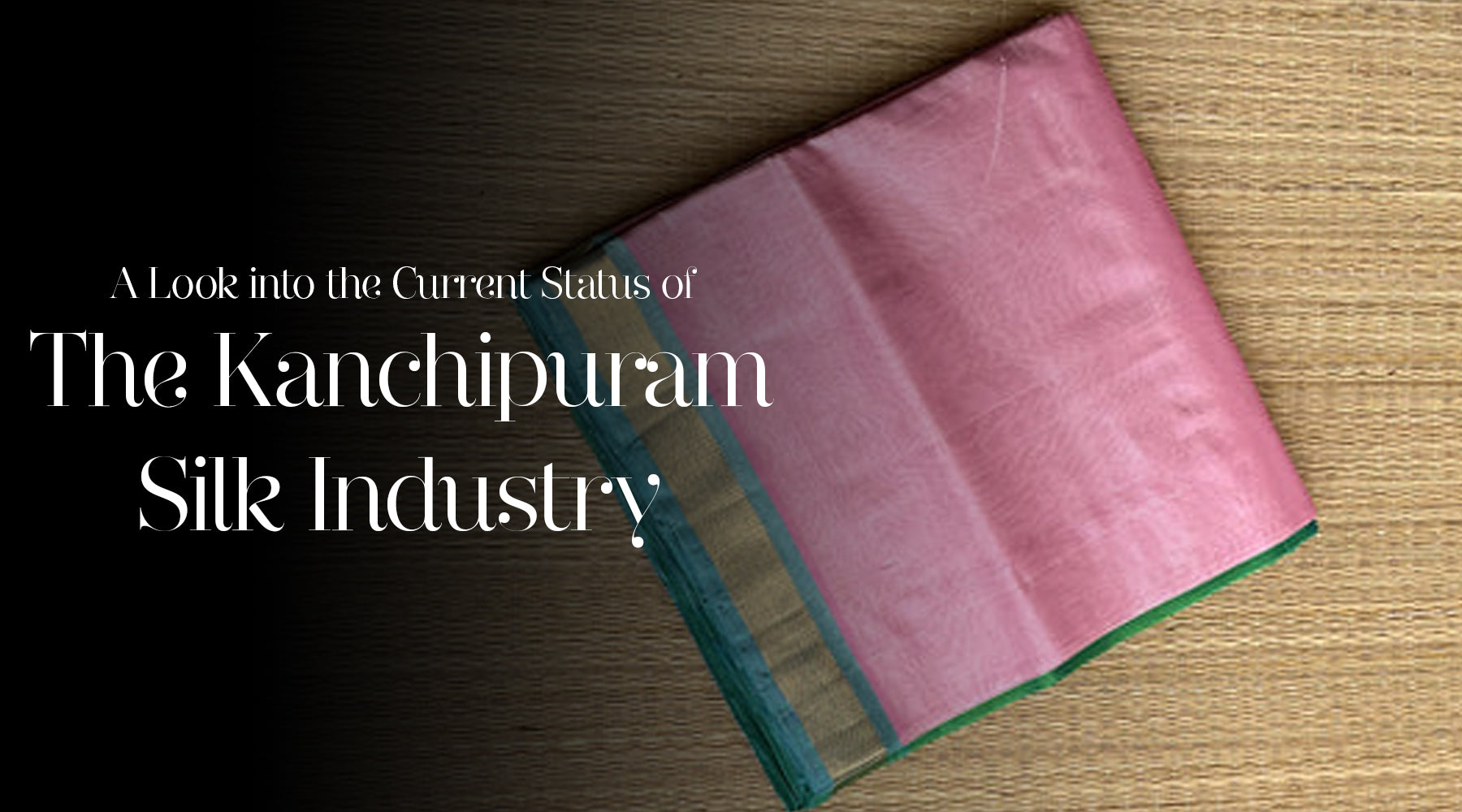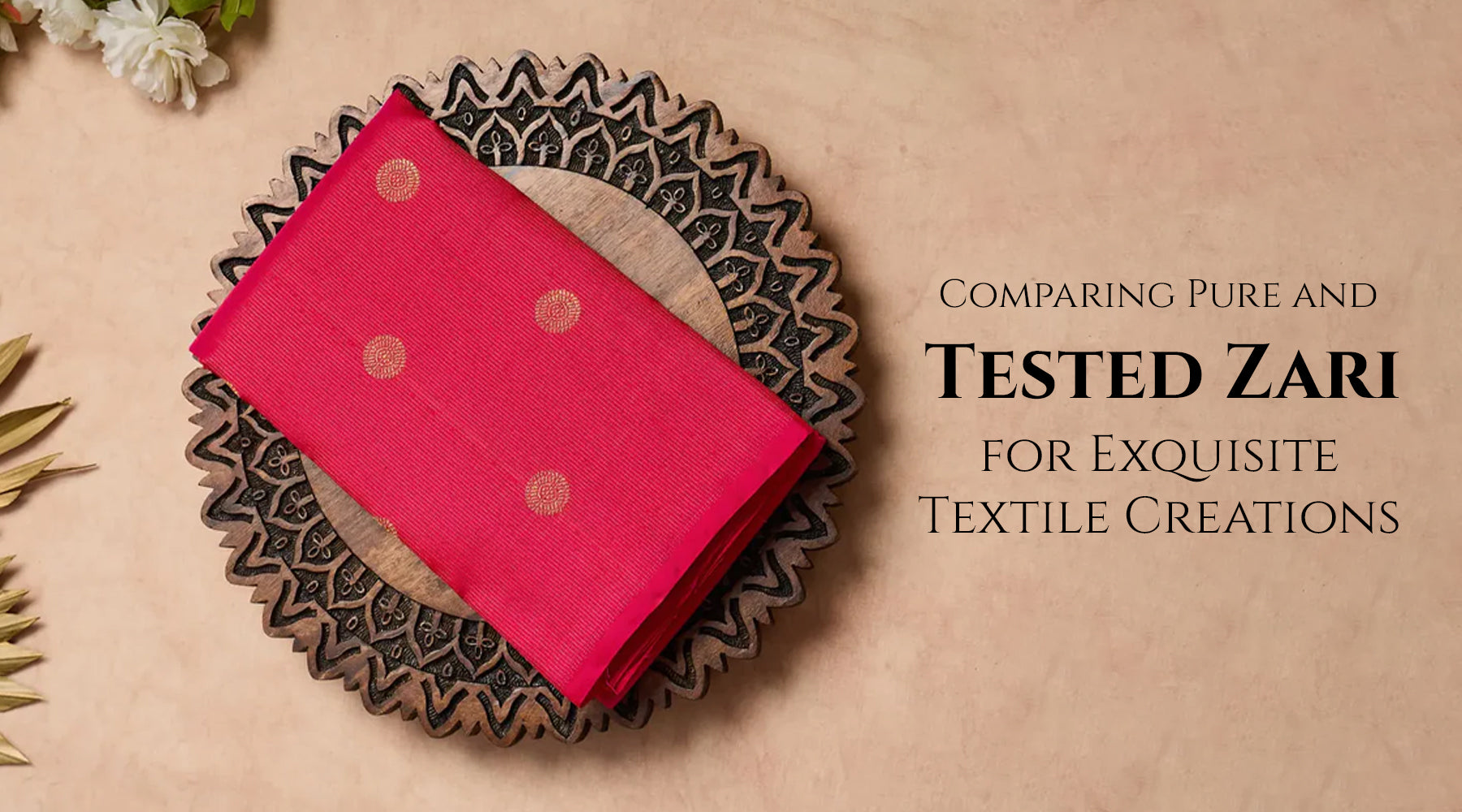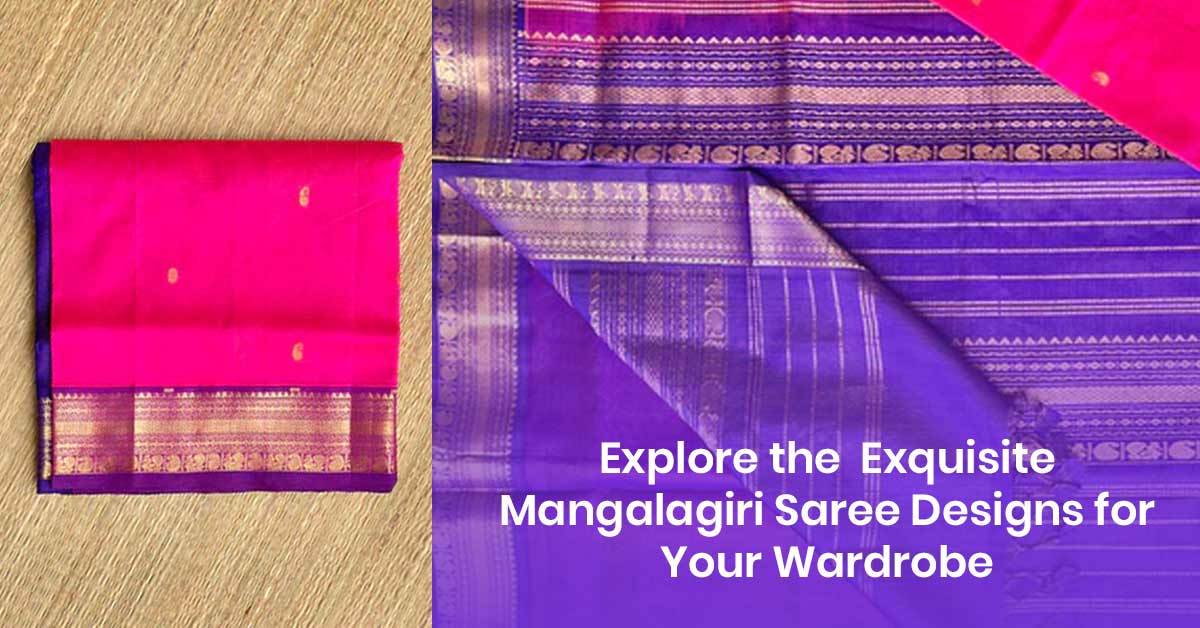
A Look into the Current Status of the Kanchipuram Silk Industry
The pure silk Kanchipuram silk sarees have gained immense popularity worldwide due to their exceptional hues and delicate golden zari craftsmanship, resulting in unique weaves and patterns. These silks originated from Kanchipuram, located in Tamil Nadu's southern part. It is a small town and the livelihood of the residents is assured by weaving silk sarees.
This curated collection's extensive array of Kanchipuram silk sarees showcases beauty and intricacy. Kanjivaram sarees for wedding, being heavier than other silk varieties, endow unique works of patterns and motifs such as temples, flowers, peacock, and even from the book of Mahabharata, the Bhagwat Gita, and the Ramayana elevating the beauty of these sarees.
Over centuries, these sarees have asserted their dominance in South Indian sarees. Symbolizing the culture of every South Indian wedding, ceremony, or occasion, their luster and fabric durability have made them a popular choice among women worldwide. Hence, this blog explores the present situation of the Kanchipuram silk saree industry.
Current Status of Kanchipuram Silk Industry:
At present, the Kanchipuram silk sector functions primarily through two channels:
- Cooperative societies
- Private traders
The latest statistical data indicates approximately 60,000 silk looms to be operational in Kanchipuram. The town's annual turnover surpasses Rs. 200 crores, with exports totalling around Rs. 3 crores.
Experts note that exports are yet to reach their full potential due to minimal demand for sarees outside India. The industry contemplates product diversification to boost exports positively. Some units have begun weaving salwar sets to attract a teenage customer base, while others explore furnishing production. Many Germans express interest in purchasing these silk sarees for interior decor and as wall panels during festive occasions.
Extensive research aims to enhance the production process's technological efficiency, speed, and quality. The integration of computers for design creation is increasingly prevalent.
In response to growing consumer preferences for affordable, lightweight sarees with simple designs and light colors, notable changes have been introduced in Kanchipuram sarees. Weavers have embraced combining silk and cotton to craft the saree body.
In certain instances, the saree body is woven in cotton, while the border is in silk. Some weavers experiment with weaving borders using a blend of silk and polyester.
There is a reduction in the gold and silver content in the zari, significantly lowering the saree's overall cost. However, these measures have adversely impacted the reputation of Kanchipuram silk sarees, affecting sales negatively.
Initiative By The Government:
Collaboratively, the Tamil Nadu government, TIFAC, and Tamil Nadu Zari have established a testing unit for zari in Kanchipuram, ensuring the gold and silver content complies with standards. Both cooperatives and individuals can utilize this facility by paying a minimal fee.
The Weavers Service Centre, a Ministry of Textiles unit in Kanchipuram, offers training and consultancy services in design and modernization. It aids in upskilling weavers and creating new saree designs to attract domestic and foreign customers.
Tamil Nadu has strategized to generate the essential constituents for crafting zaris. The Handloom Commissioner elucidated that out of the 1,100 cooperative societies in the State, 90 are actively involved in producing silk sarees requiring authentic zaris. Currently, silk thread coated with silver is procured from other states, and the gold coating process takes place at the Department of Textiles and Handlooms' facility in Kancheepuram.
Moreover, he emphasized that by manufacturing the raw materials within Tamil Nadu, weavers benefit from reduced costs, ultimately enhancing their earnings.
The Department of Textiles and Handlooms aims to engage students pursuing textile engineering or technology courses, seeking their input on producing silver-coated silk threads within Tamil Nadu.
Hence, rooted in tradition and craftsmanship, the Kanchipuram silk sarees industry stands at a crossroads where it navigates challenges and embraces innovation. The industry's present situation reflects a dynamic blend of preserving heritage and adapting to evolving consumer preferences and global demands. As the Kanchipuram silk saree industry embraces innovation, it not only preserves its rich cultural legacy but also secures a promising future for weavers and stakeholders. The journey of these exquisite sarees continues, weaving together tradition and modernity and captivating the hearts of women worldwide for generations to come.


